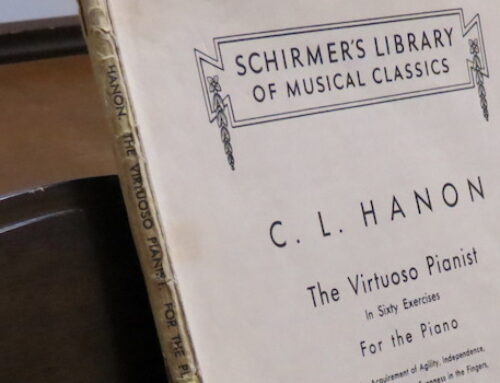One of the most memorable characteristics of my second piano teacher was her encouraging spirit. She was so sweet and kind. Something special that has stuck with me from the one year of lessons with her was her hugs. Not all teachers feel comfortable connecting with their students in this way, but it meant a lot for me at the time.
Since her encouragement had such a positive impact on me, I have striven to have the same affirmative attitude in my teaching. There are three main benefits to purposefully complimenting the promising aspects of a performance and presenting our criticisms in a truly constructive way: it motivates students, builds their confidence, and helps foster their love for music.
1) Encouragement Motivates
When a teacher recognizes and celebrates improvement, students want to work harder to continue to improve. If they spend hours practicing and go to their lessons only to discover all the problems with their playing, why would they be motivated to practice? We feel motivated when we see something happening. We feel motivated when our hard work starts to pay off. Of course, we need to share constructive criticism with our students: if they have nothing to work on, they won’t feel motivated to practice either. But it is vitally important to also recognize the things that were done well. No matter how small they are. Maybe your student had a lot of trouble with a piece and it’s hard to see the good. Look for it—there has to be something positive to say. Maybe she had good posture or maybe you liked her creativity. Any small encouragement will make a difference.
2) Encouragement Builds Confidence
This point is pretty self explanatory. I think most of us can relate. If we are constantly aware of only the negative aspects of our playing, we don’t feel very confident. If we are able to recognize our skill despite still having much to learn, we feel more free to share our talents with others. Music is about communication. We don’t want to crush our students into fear but make them feel free and happy to share music with others. I think it’s especially important to be extra encouraging with our students right before performances. In high school I noticed that my teacher hardly gave me any comments right before a performance, even when I still had a lot I could fix. I want to learn from her. It’s easy to feel like sharing too many comments in the last lesson before a performance because we feel that just maybe our student could fix all this in the next few days. It really doesn’t help much though. Confidence can play a huge role in how well someone plays.
3) Encouragement Helps Foster a Love for Music
As teachers who want our students to love music, we want to do everything we can to make music lessons an emotionally positive experience. Our students will want to get out of the music world quickly if all we do is tear them down. If we build them up, they will be more likely to enjoy learning and grow to love music.
Truly “Constructive” Criticism
We call it “constructive” criticism—let’s make sure we share it in a way that is actually constructive. Before sharing any comments, try to start by saying something positive about a performance. Then kindly share some specific things that could be better and what they can do to improve them. Make sure they know that you believe they can fix those things with a little practice! Let me know in the comments section what feedback you receive from students when you share corrections in this way or how affirmative teaching affects you as a student!









Leave A Comment